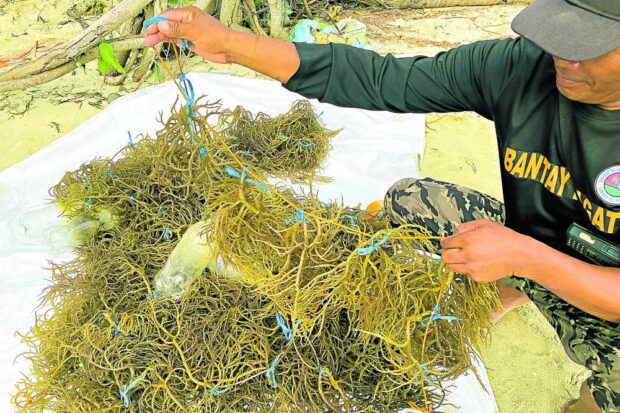Building more tissue culture labs will revive seaweed industry, says DA

Fresh seaweeds are prepared for delivery to restaurants on Siargao Island where these produce are in high demand.
MANILA, Philippines — Philippine government needs to develop local seaweed industry to boost production and regain the country’s position as the world’s top seaweed exporter.
Secretary Francisco Tiu-Laurel made the statement on Sunday.
Laurel disclosed Philippines may be falling behind in seaweed production – a field that it once dominated.
“We really need to support the industry. Indonesia already surpassed our production,” Tiu-Laurel revealed.
Article continues after this advertisement“We still have [an] unutilized area of 85,000 hectares. Until we reach that, we shouldn’t stop,” he noted.
Article continues after this advertisement“If possible, we should accelerate the industry’s area expansion,” the Agriculture secretary added.
According to DA, Philippines accounted for 80 percent of the world’s seaweed requirement in 1990, while Indonesia produced only 10 percent.
This record has since changed as Indonesia is now producing five times more seaweed than Philippines, it said.
Tiu-Laurel said local producers suffer from a lack of seedlings, but he said the problem can be solved by setting up bigger tissue culture laboratories.
Tiu-Laurel also sees the need to construct more ports so that huge volumes of raw materials can be moved from farms to processing plants.
Most of the country’s seaweed production comes from Mindanao, but processing facilities are located in Cebu and Manila.
The Secretary said the country must invest a total of P1 billion pesos in the industry.
The fund will build large tissue culture laboratories, dryers, warehouses and train more technicians.
Laurel estimated with proper support, farmers will be able to produce up to P550 million worth of seaweed every year, which he said is a “good return.”